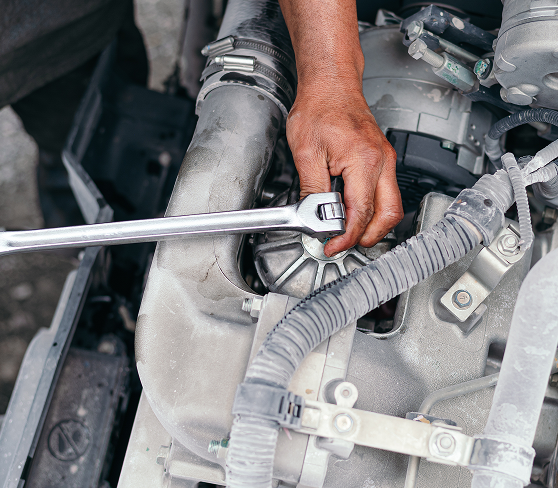Discover the hidden costs of car ownership, from depreciation to insurance, and learn how financing options like car loans and novated leasing can help manage expenses.
Whether we like it or not, our beloved vehicles are a depreciating asset, which means by owning one you are losing money – even as it sits parked.
Still, owning a vehicle remains one of the biggest financial investments you can make in your lifetime, which is why it’s important to understand the total cost of ownership for a vehicle, which goes far beyond its sticker price.
In this blog, we’ll take-a-look at some of the costs incurred in vehicle ownership to help with better financial planning, as well as talking about some of the different finance options that may assist in managing vehicle expenses.
The true cost of vehicle ownership
As we’ve mentioned, the true cost of owning a vehicle goes beyond what you pay for it at the time of purchase. Running costs can extend to important and in some cases, mandatory expenses for the life of the vehicle.
Many would-be owners are surprised to learn how much it costs to own a vehicle, as expenses can add up in the long run; especially as a vehicle gets older and endures normal wear and tear.
Hidden costs of owning a vehicle
Behind every vehicle is a long list of additional expenses. Let’s unpack some of the major hidden costs that can catch owners by surprise.
1. Depreciation – The Biggest Hidden Expense
Regardless of what a vehicle is used for, and how many kilometres it is driven, in most cases it will remain a depreciating asset. The age of the vehicle is one of the biggest factors in depreciation, as is its odometer reading. Vehicles can be quickly superseded too – with new models releasing constantly, each with newer technologies and features than before.
While some people may buy a vehicle with the expectation it will increase in value over time (as in the case of rare sports cars and vintage models), for most passenger vehicles they will never be worth more than the day they are first registered.


2. Insurance Costs – More Than Just The Basics
An important cost to factor in for any vehicle purchase is insurance – with compulsory third party (CTP) insurance, which covers the other driver in the event of an accident if you’re at fault – being a pre-requisite for registration. Most people opt to take out further levels of protection, known as comprehensive insurance, to cover their own vehicles against things like accidental damage and theft, adding to ongoing expenses to keep a vehicle on the road.
Remember, insurance costs can vary based on factors like the primary driver’s age, location of where the vehicle will usually be parked, and how far it is expected to travel throughout the year – so it always pays to get a number of quotes from insurance providers based on your chosen vehicle and compare the different policy inclusions as well as their costs.
3. Maintenance and Repairs – Unexpected Expenses
All cars need regular maintenance to keep them running at optimal levels and to ensure fuel efficiency, continued safety and roadworthiness, which is why maintenance is a crucial, and often costly, part of vehicle ownership.
While many manufacturers offer capped-price servicing or pre-purchased servicing packages for several years, this is still an additional outlay beyond the purchase of a new or used vehicle and has to be factored in when you’re budgeting. Other important items not covered in a regular service may include tyres, brake pads, engine fluids and windscreen wipers.


4. Registration, Roadside Assistance & Government Fees
Much like insurance and maintenance, vehicle registration is mandatory, and an ongoing expense vehicle owners need to account for when adding up the total cost of ownership. Registration is paid annually and as mentioned also requires compulsory CTP insurance.
Vehicles over a certain age also need an annual roadworthiness inspection from a certified mechanic (often referred to as a pink slip), which can also add up – aside from the cost of the inspection, any urgent repairs may be required to be completed before a vehicle can be registered. This is where many owners can get caught out.
5. Fuel and Running Costs
Whether your vehicle requires petrol, diesel fuel electricity to run – fuel and running costs are an ongoing expense for vehicle owners, which is why it’s important to understand your own needs from a vehicle (i.e. short or long distance, towing etc) and selecting a vehicle that can support that.
For example, electric vehicles are becoming an increasingly popular option for drivers who usually drive low kilometres during a week and have the ability to charge at home, where they might even be able elect when they charge their vehicle to take advantage of off-peak periods to further reduce costs.
Metro Finance also supports the transition to electric mobility, with a range of finance packages to support sustainable technologies including EVs, charging, solar energy and battery storage.

How vehicle financing can help manage these costs
Rather than purchasing a vehicle outright with a lump-sum payment, there are several finance options that can help take the sting out of up-front costs, and in some instances, even reduce your tax liability.
1. Car Loans – Spreading the Cost Over Time
One of the most common forms of financing, a car loan helps buyers get into the new or used vehicle of their choice now, while not having to incur all the upfront costs in one hit.
Loans are usually either secured, where the vehicle is used as collateral against the loan until it is paid off, or unsecured – usually for a much lower loan amount. Another common feature of vehicle loans is the option for a balloon payment at the end of the loan to help reduce monthly repayments.
2. Novated Leasing – A Cost-Effective Option for Employees
A novated lease is a popular way for employees to get into a vehicle while taking advantage of the many tax benefits they provide.
Established as a three-way arrangement between an employee, their employer and a financier, a novated lease bundles all of a car’s expenses together (repayments, registration, fuel, insurance, servicing etc) in the form of a monthly payment, which is deducted from an employee’s before-tax income by their employer, who makes repayments on their employee’s behalf – in-turn reducing the employee’s taxable income.
In some ways, a novated lease can offset some of the potential downsides of depreciation, as the employee doesn’t own the vehicle, but rather leases it from a financier. At the end of the agreed lease term, the employee may wish to change vehicles and start a new lease or even lease additional vehicles for their immediate family. This is why novated leases are a popular and cost-effective way to get access to a vehicle of choice.
3. Commercial Finance for Business Owners
Unlike a personal or car loan for an individual, commercial finance is specifically for business owners looking to purchase assets for their operations, including passenger vehicles, light and heavy commercial vehicles and agricultural equipment.
Some of the common benefits of commercial finance include faster access to funds, a wider range of financial options as well as potentially lower interest rates compared to a normal bank loan. The other great advantage for businesses is the potential for great tax benefits that come with utilising a commercial finance option over other products.
Contact Metro Finance for Expert Help
Want to know more? Chat with a Metro expert or one of our friendly brokers to learn more about the type of finance products we offer, and how we can create a tailored financial option to suit your needs.
Secured Car Loans - Frequently Asked Questions
Can I get a secured car loan with a poor credit score?
Contact your asset finance broker who can assist you with applying a commercial finance loan or alternatively you are welcome to contact Metro who can provide you with a list of accredited Metro brokers who you can get in touch to arrange an application.
What happens if I can't make the payments on my secured car loan?
If you’re unable to make payments on your secured car loan, it’s important to act quickly. Since your car serves as collateral for the loan, the lender has the right to take back the car and sell it to recover the money you owe.
Before things get to that stage, many lenders are willing to work with you if you’re facing financial difficulties. If you’re struggling to make payments, it’s a good idea to contact your lender as soon as possible to discuss options like adjusting your payment plan or temporarily pausing payments (hardship arrangements). Ignoring the issue could lead to penalty fees and damage to your credit score, making future borrowing more difficult.
Can I use a secured car loan to buy a used car?
While the exact timeframe can vary depending on various factors, including the completeness of the application and the complexity of the financing request, we strive to provide a decision as quickly as possible.

